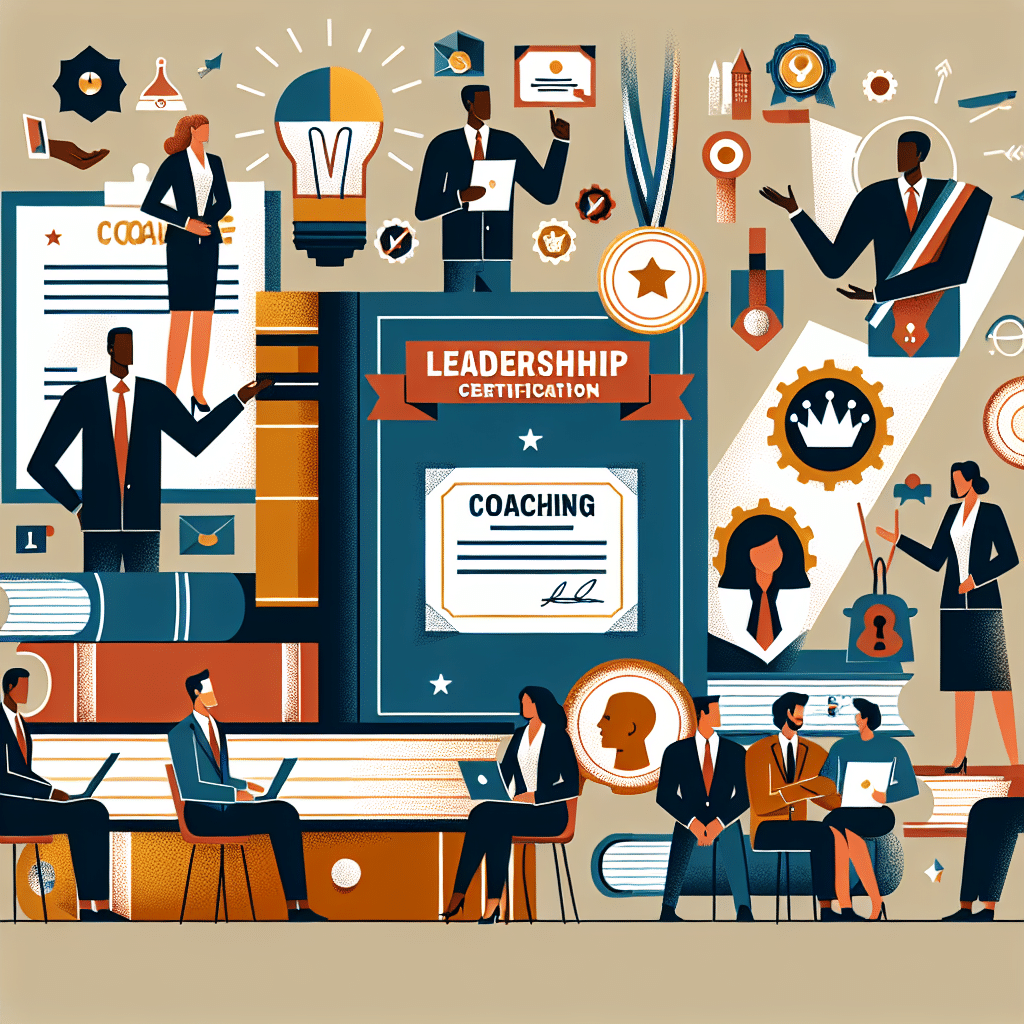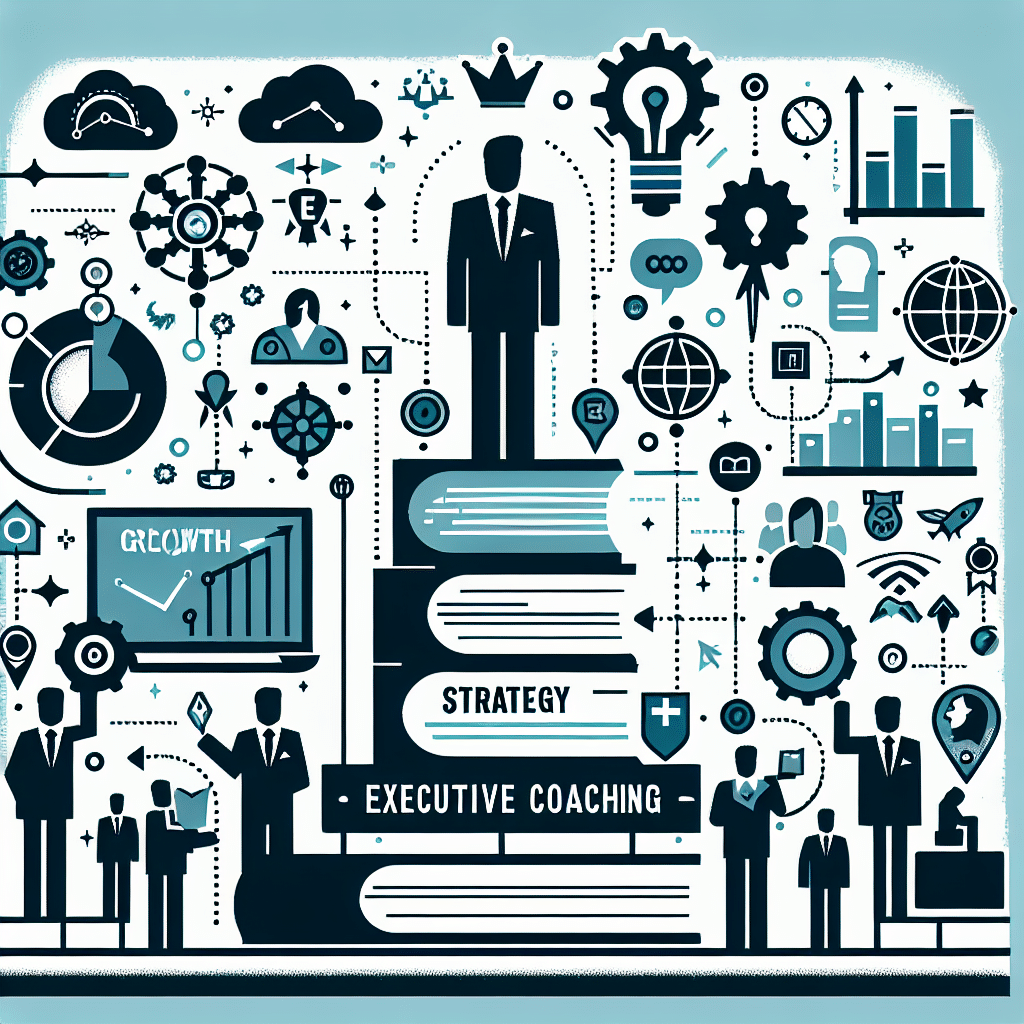Building Tomorrow’s Leaders: A Guide to Effective Leadership Coaching
Building Tomorrow’s Leaders: A Guide to Effective Leadership Coaching
Introduction
Welcome to the exciting world of coaching leader dynamics! In today’s fast-paced corporate jungle, the need for effective leadership is more crucial than ever. But what does it mean to be a successful leader in this era? Spoiler alert: it’s not just about having a corner office or a fancy title. It’s about cultivating a coaching leadership style that empowers teams, fosters innovation, and drives organizational success.
Think of leadership coaching as the secret sauce that transforms regular managers into extraordinary leaders. It’s like upgrading from a bicycle to a high-speed train both get you somewhere, but one does it with flair and efficiency! Leadership coaching equips leaders with essential skills that not only enhance their performance but also elevate their teams’ capabilities.
In this guide, we’ll explore the multifaceted realm of leadership coaching. We’ll dive into effective coaching techniques, uncover essential skills for leaders, and discuss how to foster innovation and trust within teams. Whether you’re an executive coach or someone looking to develop your own leadership skills, this guide is packed with insights that can help you navigate the complex landscape of leadership development.
Did You Know?
- 93% of companies are currently undergoing digital transformation (International Data Corporation).
- 75% believe effective training and coaching are vital for successful transformation (PwC).
- 68% of leaders see AI strategies combined with coaching as a game-changer (HBR).
So buckle up! As we embark on this journey through the intricacies of effective leadership coaching, expect to gain practical insights and actionable strategies that will empower you to lead like never before. Ready? Let’s dive in!
The Importance of Leadership Coaching
When it comes to nurturing a successful organization, the role of a coaching leader cannot be overstated. Leadership coaching is not just a nice-to-have; it’s an essential ingredient in the recipe for effective leadership development. Think of it as the secret sauce that transforms good leaders into great ones.
Defining Coaching Leadership Style
At its core, a coaching leadership style prioritizes collaboration, communication, and empowerment. Unlike traditional top-down approaches, coaching leaders foster an environment where team members feel valued and heard. This style encourages open dialogue and constructive feedback, making it easier for teams to innovate and adapt.
The Role of Coaching in Leadership Development
Leadership coaching plays a pivotal role in developing essential leadership skills. It provides leaders with the tools they need to navigate complex challenges while enhancing their emotional intelligence. By focusing on personal development coaching, leaders can better understand their strengths and areas for growth.
Benefits of Effective Leadership Coaching
- Enhanced Communication Skills: Leaders learn how to articulate their vision clearly and inspire their teams.
- Increased Resilience: Coaching helps leaders develop strategies to bounce back from setbacks, making them more adaptable in times of change.
- Improved Team Dynamics: Through team coaching, leaders can cultivate trust and collaboration among team members.
- Goal Setting in Leadership: Effective coaching encourages leaders to set measurable goals that align with organizational objectives.
- Conflict Resolution Skills: Leaders gain techniques to address conflicts within teams constructively.
A common misconception is that leadership coaching is only beneficial for those at the executive level. In reality, cultivating a coaching culture throughout all levels of an organization can lead to transformative results. Whether you’re focused on business coaching or management coaching, investing in leadership development pays dividends across the board.

The journey towards becoming an impactful leader doesn’t stop here. As we explore key coaching techniques in the next section, remember that every step taken toward enhancing your leadership skills is a step toward building tomorrow’s leaders!
Key Coaching Techniques for Leaders
When it comes to being a coaching leader, employing the right techniques can make all the difference. Here are some of the most effective coaching techniques that can elevate your leadership game:
-
Transformational Leadership Coaching Methods
This approach focuses on inspiring and motivating team members to achieve their full potential. By fostering a shared vision, you not only enhance individual performance but also drive team success. Think of it as being the captain of a ship, steering your crew toward uncharted waters with confidence and clarity.
-
Adaptive Leadership Techniques for Evolving Challenges
The business landscape is constantly changing, and leaders must adapt to thrive. Utilizing adaptive leadership techniques allows you to respond effectively to new challenges and uncertainties. It’s like being a chameleon; you need to change your colors based on your environment while maintaining your core values.
-
Coaching Strategies for Building Resilience in Leaders
Resilience is key in today’s fast-paced world. Implementing coaching strategies that focus on building resilience helps leaders bounce back from setbacks stronger than ever. This involves encouraging a growth mindset among team members, where challenges are viewed as opportunities for learning and development.
Did You Know? Research shows that organizations with strong coaching cultures report 49% higher employee engagement levels (International Coaching Federation).
As you implement these techniques, remember that the essence of effective leadership coaching lies in building relationships based on trust and open communication. This creates an environment where feedback flows freely, empowering leaders and teams alike.
The best way to predict the future is to create it yourself.
Incorporating these key coaching techniques into your leadership style not only enhances your effectiveness as a leader but also contributes significantly to the overall development of your team. So go ahead, embrace these strategies and watch as you transform into an even more impactful coaching leader!
Essential Skills for Effective Leadership Coaching
Being a coaching leader isn’t just about having a title; it’s about embodying the skills that inspire and elevate others. Here are the essential skills that every effective leadership coach should master:
-
Communication Skills for Leaders and Coaches
Imagine trying to assemble IKEA furniture without instructions frustrating, right? Clear communication is your instruction manual in leadership coaching. It’s not just about talking; it’s about listening actively, asking the right questions, and fostering an open dialogue. This skill is crucial for understanding team dynamics and individual needs.
-
Emotional Intelligence in Leadership Roles
Ever seen a leader who can read the room like a bestselling novel? That’s emotional intelligence (EI) in action! A coaching leader needs to recognize their own emotions and those of others to build stronger connections. This ability enhances empathy, which is vital for mentorship and creating a supportive environment.
-
Influence and Persuasion in Coaching Scenarios
If you’ve ever tried to convince your friends to binge-watch your favorite series, you know that influence is key! In leadership coaching, this skill helps leaders motivate their teams and foster buy-in for new initiatives. Understanding the art of persuasion can transform resistance into enthusiasm.
-
Conflict Resolution Skills
No one enjoys conflict like stepping on a LEGO brick in the dark! However, conflict is inevitable in teams. A skilled coaching leader must navigate these tricky waters with finesse. By employing active listening techniques and fostering open dialogue, coaches can turn conflicts into opportunities for growth.
-
Goal Setting in Leadership
A great coach knows how to set SMART goals Specific, Measurable, Achievable, Relevant, Time-bound. Think of it as your treasure map leading to success! By helping team members set clear objectives, coaching leaders guide them toward personal development and organizational success.
-
Resilience Building Techniques
In today’s fast-paced world, resilience is like having a superhero cape essential for overcoming challenges! Coaching leaders must equip their teams with strategies to bounce back from setbacks. This involves fostering a growth mindset where failures are seen as learning opportunities rather than dead ends.
Mastering these essential skills not only enhances your effectiveness as a coaching leader but also empowers your team to thrive amidst challenges.

Fostering Innovation and Trust Through Coaching
When it comes to coaching leaders, one of the most powerful outcomes is the ability to foster innovation and trust within teams. Think of a coaching leader as a gardener nurturing the right environment for ideas to blossom and grow. Here’s how effective leadership coaching can create a culture rich in creativity and reliability.
Creating a Culture of Feedback and Performance Improvement
First off, let’s talk about feedback. You know that saying, “Feedback is the breakfast of champions”? Well, it’s true! Establishing a culture where feedback flows freely can transform team dynamics. Here are some strategies:
- Implement regular feedback loops: Weekly check-ins can help address issues before they snowball.
- Encourage peer-to-peer feedback: This not only enhances communication skills for leaders but also builds camaraderie.
- Create a safe space for constructive criticism: When team members feel secure, they’re more likely to share innovative ideas.
The Impact of Trust on Team Dynamics
Trust acts like glue in team dynamics; without it, collaboration falls apart faster than a house of cards. A coaching leader builds trust through transparency and reliability:
- Be open about decision-making processes: Share your rationale behind choices to demystify leadership.
- Show vulnerability: Admitting mistakes can humanize you, making you more relatable and trustworthy.
- Celebrate successes together: Recognizing achievements fosters a sense of belonging and shared purpose.
Strategies for Fostering Innovation
Innovation isn’t just about having great ideas; it’s about creating an environment where those ideas can thrive. Here are some effective coaching techniques:
- Diversify thought processes: Encourage diverse perspectives in brainstorming sessions to spark creativity.
- Set aside time for creative exploration: Allow teams to explore new concepts without the pressure of immediate results think “innovation time.”
- Utilize role-playing scenarios: This can help team members envision new solutions by stepping into different roles within the organization.

The journey toward becoming an empowering leader through coaching is filled with opportunities for growth not just for you but for your entire team. By embedding these practices into your leadership approach, you’re not only enhancing performance but also paving the way for innovation that can lead your organization into the future.
Navigating Change Management with Coaching Growth Strategies
Change is the only constant, especially in the fast-paced world of business. As organizations evolve, the role of a coaching leader becomes paramount. Navigating change management with effective coaching growth strategies can transform potential chaos into a well-orchestrated symphony of progress.
First off, let’s talk about the role of coaching in change management processes. Think of it as having a seasoned pilot guiding you through turbulent skies. A coaching leader helps teams not just survive but thrive during transitions. Here are some key strategies:
- Creating a Vision: A clear vision is crucial for any change initiative. Coaching leaders help articulate this vision, ensuring alignment across all levels of the organization.
- Building Resilience: Change can be daunting. By employing coaching techniques that focus on resilience, leaders can empower their teams to adapt and overcome challenges.
- Encouraging Open Communication: Transparency is key during transitions. Coaching fosters an environment where feedback flows freely, allowing for quicker adjustments and improved morale.
Now, let’s dive into leadership growth strategies during transitions and transformations. Here are some practical approaches that can make all the difference:
- Personal Development Coaching: Investing in individual growth ensures that leaders are equipped with the necessary skills to guide their teams through change.
- Team Coaching Sessions: Facilitating group discussions allows team members to share their concerns and solutions, fostering collaboration and innovation.
- Crisis Management Training: Preparing leaders for unexpected challenges helps build confidence and enhances overall team performance during stressful times.
Did you know?
A study by PwC revealed that effective training and coaching are essential for successful digital transformation in 75% of companies. This highlights the importance of integrating coaching into your change management strategies!
The journey through change management doesn’t have to be a lonely one. With the right coaching strategies in place, organizations can foster a culture of adaptability and resilience, ensuring they not only survive but thrive amidst uncertainty.

Conclusion: Empowering Leaders Through Coaching for Future Success
As we wrap up our exploration of effective leadership coaching, it’s clear that the role of a coaching leader is more crucial than ever. In an era characterized by rapid change and uncertainty, leaders equipped with strong coaching skills can not only navigate their teams through challenges but also foster a culture of resilience and innovation.
The journey of leadership development is not a solitary path; it involves collaboration, feedback, and continuous learning. By embracing a coaching leadership style, leaders can transform their teams into high-performing units that thrive on mutual trust and open communication. This approach aligns perfectly with the principles of transformational leadership, which emphasizes inspiring and motivating others to achieve their fullest potential.
Key Takeaways:
- Effective leadership coaching enhances emotional intelligence, enabling leaders to connect better with their teams.
- Utilizing adaptive leadership techniques prepares leaders to tackle evolving challenges head-on.
- A focus on goal setting in leadership not only drives results but also cultivates accountability within teams.
Moreover, integrating coaching strategies into your management approach can significantly improve team dynamics. Whether through performance coaching or team coaching sessions, the benefits are multifaceted:
- Building Trust: Establishing trust as a leader coach encourages open dialogue and constructive feedback.
- Conflict Resolution: Leaders trained in conflict resolution are better equipped to handle disputes effectively, fostering a healthier work environment.
- Fostering Innovation: Encouraging creativity through coaching techniques helps teams generate fresh ideas that drive business growth.
The future belongs to those who invest in their leaders today. By prioritizing professional development for leaders through structured coaching programs, organizations can ensure they remain competitive in an ever-changing landscape. The integration of AI into these programs offers additional layers of insight and efficiency, paving the way for smarter decision-making processes.
If you’re ready to empower your leaders through effective coaching strategies that drive success, consider partnering with experts who understand the nuances of both human dynamics and technological advancements. It’s time to build tomorrow’s leaders today!
The Importance of Leadership Coaching
- Defining coaching leadership style
- The role of coaching in leadership development
- Benefits of effective leadership coaching
Key Coaching Techniques for Leaders
- Transformational leadership coaching methods
- Adaptive leadership techniques for evolving challenges
- Coaching strategies for building resilience in leaders
Essential Skills for Effective Leadership Coaching
- Communication skills for leaders and coaches
- Emotional intelligence in leadership roles
- Influence and persuasion in coaching scenarios
Fostering Innovation and Trust Through Coaching
- Creating a culture of feedback and performance improvement in teams
- The impact of trust on team dynamics and performance coaching
- Strategies for fostering innovation through coaching techniques
Navigating Change Management with Coaching Growth Strategies
- The role of coaching in change management processes
- Leadership growth strategies during transitions and transformations
Conclusion: Empowering Leaders Through Coaching for Future Success
A coaching leadership style prioritizes collaboration, communication, and empowerment. Unlike traditional top-down approaches, coaching leaders foster an environment where team members feel valued and heard.
” } }, { “@type”: “Question”, “name”: “What are the benefits of effective leadership coaching?”, “acceptedAnswer”: { “@type”: “Answer”, “text”: “
- Enhanced Communication Skills
- Increased Resilience
- Improved Team Dynamics
- Goal Setting in Leadership
- Conflict Resolution Skills
” } }, { “@type”:”Question”, “name”:”How can innovation be fostered through coaching?”, “acceptedAnswer”:{ “@type”:”Answer”, “text”:”
- Diversify thought processes
- Set aside time for creative exploration
- Utilize role-playing scenarios
” } } ] }, { “@type”:”SpeakableSpecification”, “xPath”:[ “//h1[@class=’highlight’]”,”//h2[@class=’highlight’]”,”//p[@class=’highlight’]” ] } ] }





















Leave a Reply